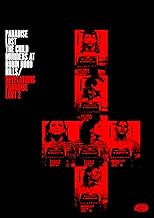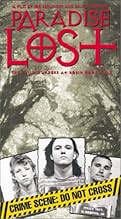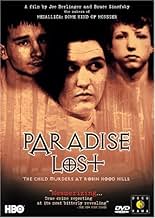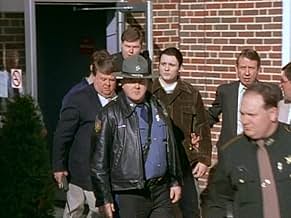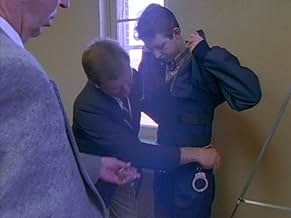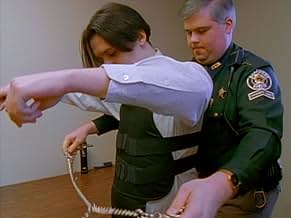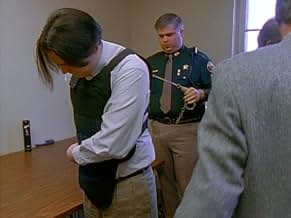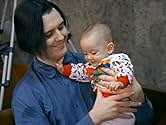A horrific triple child murder leads to an indictment and trial of three nonconformist boys based on questionable evidence.A horrific triple child murder leads to an indictment and trial of three nonconformist boys based on questionable evidence.A horrific triple child murder leads to an indictment and trial of three nonconformist boys based on questionable evidence.
- Won 1 Primetime Emmy
- 9 wins & 10 nominations total
- Self - KAIT-TV
- (archive footage)
- Self - KAIT-TV
- (archive footage)
- Self - KAIT-TV
- (archive footage)
- Self - KAIT-TV
- (archive footage)
- Self - KAIT-TV
- (archive footage)
- Self
- (as Rev. Tommy Stacy)
- Self
- (as Jessie Miskelly)
Storyline
Did you know
- TriviaFirst feature film to contain licensed music of Metallica, something that the band was initially opposed of doing. The band was involved in raising public awareness of the accused. Joe Berlinger would later do a documentary on Metallica in "Metallica: Some Kind of Monster".
- GoofsDamien reads this Shakespearean quote while on trial: "Life's but a walking shadow...full of sound and fury signifying nothing." He incorrectly refers to it as being from A Midsummer Night's Dream. It is, in fact, a soliloquy famously from Macbeth.
- Quotes
Damien Wayne Echols: I knew from when I was real small people were gonna know who I was, I always had that feeling... I just never knew how they were gonna learn. I kind of enjoy it now because even after I die, people are gonna remember me forever. People are gonna talk about me for years. People in West Memphis will tell their kids stories... It'll be sorta like I'm the West Memphis boogie man. Little kids will be looking under their beds - "Damien might be under there!"
- SoundtracksWelcome Home (Sanitarium)
By Metallica
Written by James Hetfield, Lars Ulrich, and Kirk Hammett
Produced by Flemming Rasmussen (uncredited) with Metallica (uncredited)
When three very young boys are found brutally murdered, and mutilated the town of West Memphis demands retribution and closure, and so, after some fruitless weeks of police work, the suspects become three teen-age boys, who listened to heavy metal, and the oldest of whom dressed (somewhat) Goth and was interested in Wicca. A strong indictment of how, at least some of the time in our justice system 'guilty until proved innocent' is the rule.
That said, the film makes some serious miss-steps by not being clearer about some of the evidence it brings up, but never explores. For example, we're told early on by the filmmakers that all 3 boys had alibis for the night of the killing, yet we never hear about it again. Are their defense lawyers THAT bad, or were the alibis not solid? Two said they were home with their families, yet the families never mention being with them that night. Similarly, we are never told why the police picked up the first of the boys, a borderline mentally retarded kid, who clearly didn't know what was going on, for questioning. The implication was that the cops wanted an easy pliable target, but the issue is never explored either by the defense, or by the film-makers. In a 150 minute movie, there's no need for those kind of loose ends, leaving us to question whether we've seen a fair reporting of what went on, or if there really was more evidence against the kids than we're shown.
Still a powerful and important examination of how we often rush to judgment, socially and legally. Recent history has shown this is far from an isolated case - people are sent to prison, even death row on flimsy or incomplete evidence, and by playing on a juries fears far more often then we would all like to believe.
- runamokprods
- Jun 22, 2012
- Permalink
Details
- Release date
- Country of origin
- Official site
- Language
- Also known as
- America Undercover: Paradise Lost - The Child Murders at Robin Hood Woods
- Filming locations
- Production companies
- See more company credits at IMDbPro
Contribute to this page



